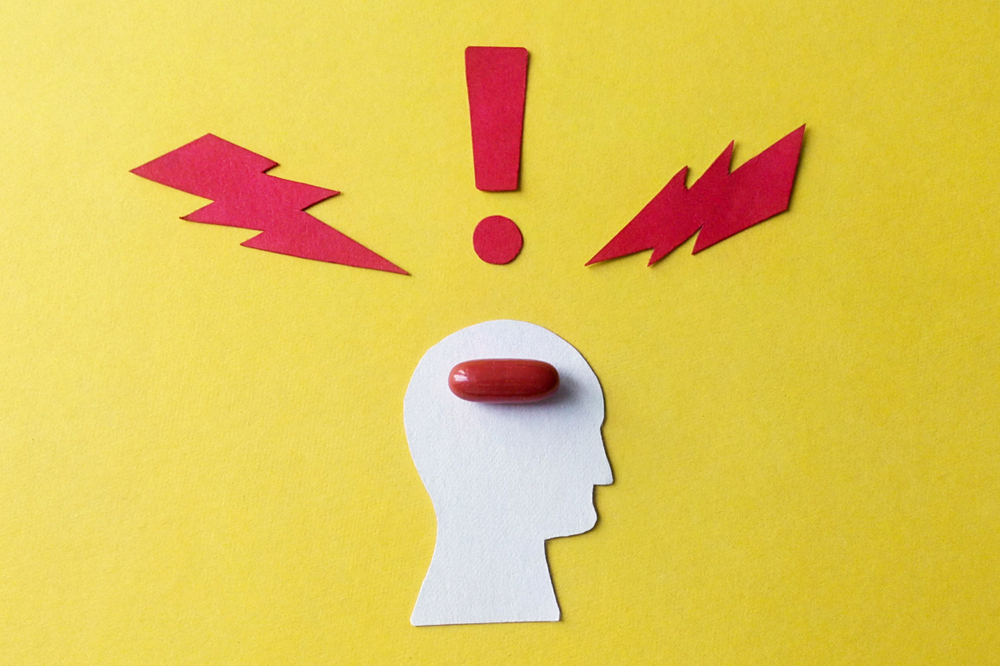People with dementia often experience changes in mood and behavior that can be challenging to manage. In some cases, healthcare professionals may prescribe antipsychotic drugs to help control symptoms such as aggression and psychosis. However, it is important to carefully consider the use of these drugs due to their potential risks and side effects. Let’s explore what you can consider before using antipsychotic drugs for dementia symptoms.
What are Antipsychotic drugs?

Antipsychotic drugs are medications that are primarily used to treat severe agitation, aggression, or distress caused by psychotic symptoms such as hallucinations and delusions. They are typically considered as a last resort when the safety of the person with dementia or those around them is at immediate risk. It is crucial to note that antipsychotic drugs have serious risks and side effects that healthcare professionals must carefully assess before prescribing them. (1)
Read More: 10 Common Causes Of Dementia
Which ones are used in dementia care and why?

Several antipsychotic drugs may be prescribed for individuals with dementia, each with its own potential risks and side effects. One commonly used antipsychotic drug is risperidone, which has the most evidence supporting its use in dementia. Risperidone is specifically licensed for short-term treatment of persistent aggression in people with moderate-to-severe Alzheimer’s disease. It is only permitted, however, if non-drug approaches have been unsuccessful. Another antipsychotic called haloperidol is licensed for use in people with Alzheimer’s disease or vascular dementia. It is typically reserved for emergency situations, however, due to its severe risks and side effects. (2)
Other antipsychotic drugs, such as quetiapine, clozapine, olanzapine, and aripiprazole, are often prescribed off-label for individuals with dementia if a healthcare professional believes that the benefits outweigh the risks for a particular patient. However, it is important to note that the evidence supporting their effectiveness in dementia is limited.
How can they help someone with dementia?

Antipsychotic drugs can have a small but significant beneficial effect on symptoms such as agitation, aggression, and psychosis in people with Alzheimer’s disease. However, improvements are typically only seen after several weeks of treatment. Antipsychotic drugs may also be prescribed for individuals with vascular dementia or mixed dementia, although they should be used with caution and under constant supervision due to the potential risks.
Read More: There’s An Entirely Different Class of Dementia We Know Almost Nothing About
Which symptoms can they not help with?

While antipsychotic drugs can be effective in managing certain behavioral symptoms of dementia, they are not effective in treating other common symptoms. These are symptoms such as memory loss, confusion, or problems with thinking. It is important to set realistic expectations and understand that antipsychotic drugs are primarily used to address behavioral and psychological symptoms rather than cognitive decline.
The problems with antipsychotic drugs for dementia patients

Antipsychotic drugs can cause serious side effects, and the risk increases with continued use over time. Some potential negative effects of antipsychotics include:
- Drowsiness
- Confusion
- Shaking
- reduced mobility
- worsening of dementia symptoms
- increased risk of swelling and infections
- higher risk of falls, fractures
- blood clots
- Stroke
- increased risk of premature death
These risks should be carefully considered before deciding to use antipsychotic drugs for individuals with dementia.
What to consider before using these drugs and non-drug approaches to changes in mood and behavior

Before using antipsychotic drugs to manage dementia symptoms, it is important to consider and explore non-drug approaches to address changes in mood and behavior. Non-drug approaches may include environmental modifications, individualized care plans, therapy, and support for the person with dementia and their caregivers. Regular exercise, changing your communication tactics, and providing tasks and games to prevent boredom will also help with difficult behaviors. Just like any other human, those with dementia need to release energy and feel a sense of achievement or accomplishment each day. (3)
It is crucial to have a comprehensive assessment by a specialist doctor, such as an old-age psychiatrist, geriatrician, or GP with expertise in dementia, before starting antipsychotic drug treatment. The doctor should evaluate the individual’s overall health, existing medical conditions, and potential risks related to antipsychotic drug use. Continuing evaluation and regular reviews of the drug’s effectiveness and side effects are essential to ensure its ongoing appropriateness.
The Bottom Line

Antipsychotic drugs can be an option for managing certain behavioral symptoms in individuals with dementia. However, due to their potential risks and limited effectiveness for cognitive symptoms, it is essential to carefully consider their use. Non-drug approaches should be explored first, and healthcare professionals should conduct thorough assessments and ongoing reviews to ensure the safety and appropriateness of antipsychotic drug treatment. Ultimately, the well-being and quality of life of the person with dementia should be the priority when considering any treatment options.
Read More: Personality Traits That Are Most Associated With Getting a Dementia Diagnosis
Sources
- “Antipsychotics and other drug approaches in dementia care.” Alzheimer’s Society
- :Appropriate prescribing of antipsychotic medication in dementia.” NHS. September 2022
- “Caregiver’s Guide to Understanding Dementia Behaviors.” Caregiver
Disclaimer: This information is not intended to be a substitute for professional medical advice, diagnosis or treatment and is for information only. Always seek the advice of your physician or another qualified health provider with any questions about your medical condition and/or current medication. Do not disregard professional medical advice or delay seeking advice or treatment because of something you have read here.

